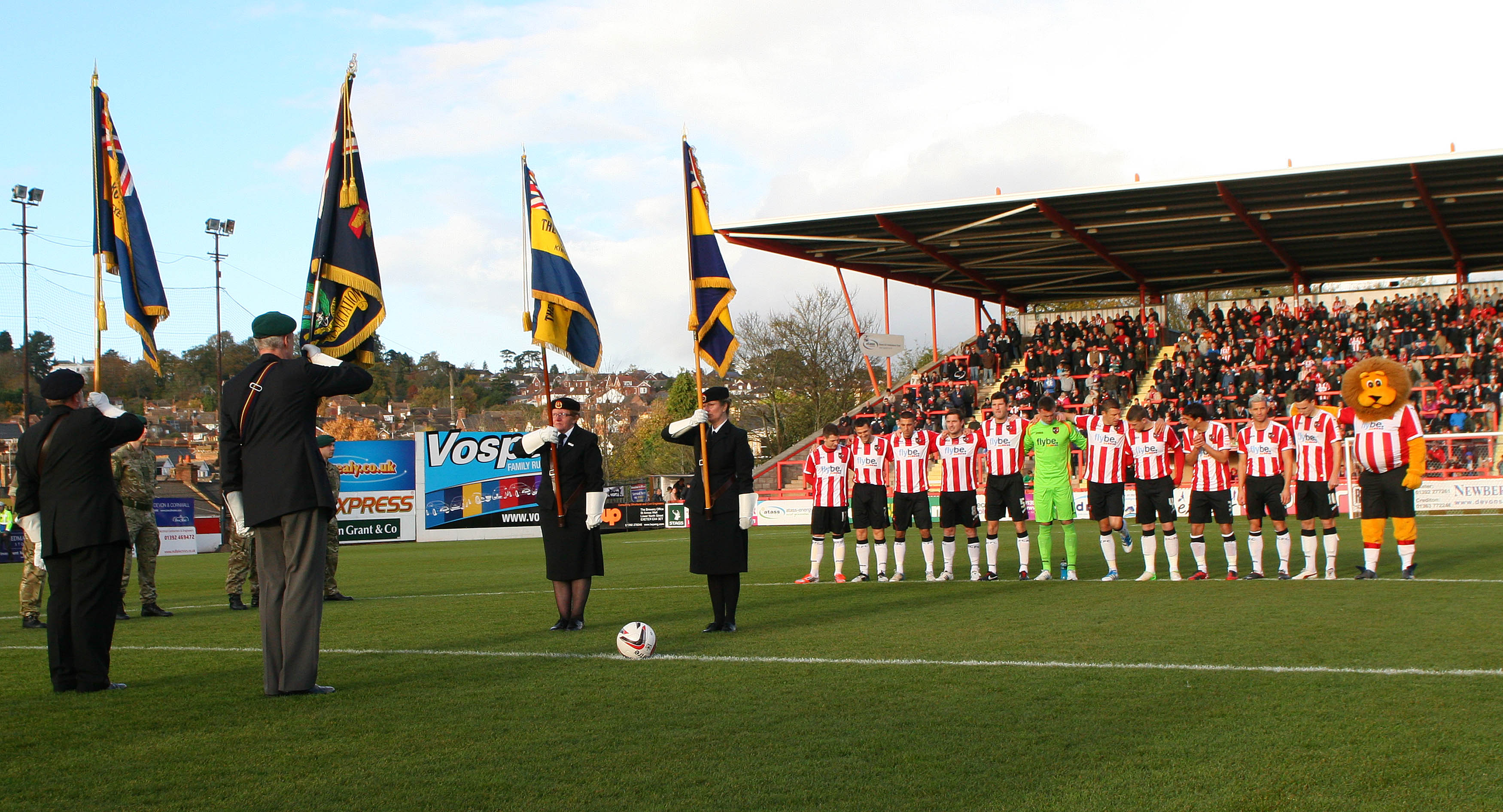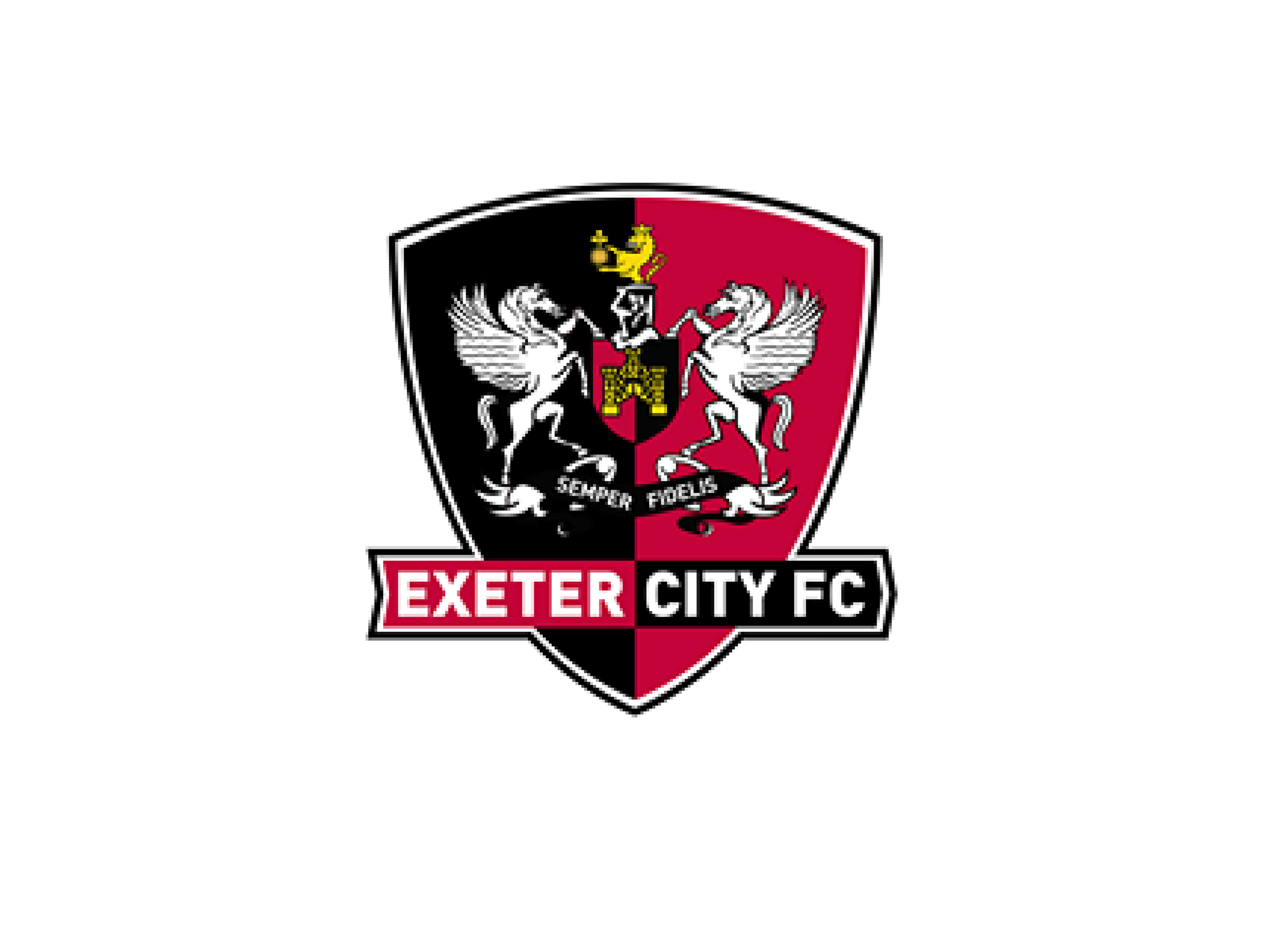We have done extensive research, and dug deep into the available information to create a comprehensive guide on historic football club for target audience.
| Key Differences | |
|---|---|
| Founded | 1904 |
| Location | Exeter, Devon, England |
| Stadium | St James Park |
| League | League Two |
| Manager | Matt Taylor |

A season’s best for Exeter City Football Club | The Exeter Daily - Source www.theexeterdaily.co.uk
FAQs
Delve into frequently asked questions regarding Exeter City, a revered football club rooted in Devon's rich history.

Exeter City F.C. | The Grecians | St James Park - Source www.thebestof.co.uk
Question 1: What are the origins of Exeter City Football Club?
Answer: Exeter City Football Club emerged in 1904 from the merger of two local teams, St Sidwell's United and Exeter United. The club initially played at St James Park before moving to its current home, St James Park, in 1906.
Question 2: What notable achievements has Exeter City Football Club accomplished?
Answer: Throughout its history, Exeter City Football Club has secured several notable achievements. In the 1989–1990 season, the club emerged victorious in the Fourth Division. Additionally, Exeter City has triumphed in the FA Trophy three times, in 1980, 1995, and 2008, and reached the quarter-finals of the FA Cup in 1931.
Question 3: Who are some of the most iconic players to have played for Exeter City Football Club?
Answer: Exeter City Football Club has seen many talented players grace its ranks over the years. Among them, John Sims stands out as the club's record goal scorer with 172 goals. Other notable players include Matt Villis, who made nearly 500 appearances for the club, and David James, who went on to become a renowned goalkeeper for England.
Question 4: What is the significance of St James Park to Exeter City Football Club?
Answer: St James Park has served as the home ground for Exeter City Football Club since 1906. It holds a special place in the club's history and is renowned for its passionate atmosphere. The stadium has undergone renovations over the years to enhance the matchday experience for supporters.
Question 5: How has Exeter City Football Club contributed to the local community?
Answer: Exeter City Football Club has played an integral role in the local community. The club's charitable arm, the Exeter City Community Trust, engages in a range of initiatives, utilizing the power of football to promote health, education, and inclusion. The club also supports various local causes and charities.
Question 6: What are the future aspirations for Exeter City Football Club?
Answer: Exeter City Football Club is committed to continued success both on and off the pitch. The club aims to achieve promotion to League One, invest in youth development, and enhance the matchday experience for supporters. Additionally, the club is dedicated to strengthening its role in the community and leaving a positive legacy.
These FAQs provide a comprehensive overview of Exeter City Football Club's history, achievements, and aspirations. The club's rich legacy, unwavering community spirit, and commitment to excellence continue to inspire and unite supporters.
Moving on, let's delve into the club's recent performances and upcoming fixtures.
Tips
To comprehend the illustrious background of Exeter City: A Historic Football Club In Devon, consider these insightful tips:

Exeter City Home football shirt 1999 - 2000. Sponsored by Exeter Friendly - Source www.oldfootballshirts.com
Tip 1: Delve into Exeter City's Origins
Trace the club's roots to 1904, when it emerged as St. Sidwell's United. Explore the pivotal role of local businessmen and enthusiasts in its formation.
Tip 2: Embrace the Club's Nickname
Cherish Exeter City's affectionate nickname, "The Grecians." Understand its historical connection to the Roman legions stationed in Exeter during ancient times.
Tip 3: Visit St. James Park, the Club's Historic Home
Immerse yourself in the atmosphere of St. James Park, Exeter City's home ground since 1904. Witness the passion of loyal fans and appreciate the stadium's rich history.
Tip 4: Celebrate Exeter City's Triumphs
Relive the club's memorable achievements, including the 1990 play-off victory that secured promotion to the third tier of English football. Recognize the contributions of legendary players and managers.
Tip 5: Engage with the Club's Vibrant Community
Connect with the dedicated supporters of Exeter City. Join the thriving fan base, attend community events, and participate in initiatives that foster a sense of belonging.
By following these tips, you will gain a deeper appreciation for Exeter City's storied past and enduring legacy.
Exeter City: A Historic Football Club In Devon
Exeter City Football Club is a professional association football club based in Exeter, Devon, England. The club was founded in 1904 and has a long and proud history, having played in the Football League for over 90 years. Some of the key aspects that contribute to the club's rich heritage and continued relevance in the football landscape include:
- Founded in 1904: Exeter City has a rich history spanning over a century.
- St James Park: The club's home ground, St James Park, holds a special place in its identity.
- Supporter Base: Exeter City boasts a loyal and passionate fan base.
The club's long-standing presence in the Football League, coupled with its dedicated supporter base, has fostered a deep sense of community and pride in Exeter. St James Park, the club's home ground, has witnessed countless memorable matches and iconic moments, further solidifying Exeter City's place in the hearts of football enthusiasts in Devon and beyond.

Exeter City 2 AFC Fylde 1 - the match in pictures - Devon Live - Source www.devonlive.com
Exeter City: A Historic Football Club In Devon
Exeter City Football Club is a professional association football club based in the city of Exeter, Devon, England. The club was founded in 1904 and has competed in the Football League since 1920. Exeter City's home ground is St James Park, which has a capacity of 8,541. The club's crest features the city of Exeter's coat of arms, which depicts a red lion rampant on a gold background. Exeter City's nickname is "The Grecians", which is a reference to the city's Roman origins.

24 04 10 v charlton athletic football league division 1 1 - Source thearchive.footballgroundsinfocus.com
Exeter City has a long and proud history. The club has won the Football League Fourth Division twice, in 1989-90 and 2008-09. Exeter City has also reached the FA Cup quarter-finals on two occasions, in 1930-31 and 1980-81. The club's most famous player is John Aldridge, who scored 162 goals for Exeter City between 1984 and 1987. Aldridge went on to play for Liverpool and Republic of Ireland.
Exeter City is a community-owned club. The club's supporters trust, the Exeter City Supporters' Society, owns 100% of the club's shares. This makes Exeter City one of a very small number of fan-owned clubs in England.
Exeter City is a vital part of the community in Devon. The club's home matches are regularly attended by thousands of fans. Exeter City also runs a number of community outreach programs, including a soccer school for children and a disability football team.
Key Insights
Exeter City is a historic football club with a proud tradition. The club is fan-owned and plays a vital role in the community in Devon.
Challenges
Exeter City faces a number of challenges, including financial constraints and competition from larger clubs. However, the club's fan ownership and community support give it a strong foundation for the future.
Practical Significance
The story of Exeter City is an inspiring example of how a community can come together to support a local football club. The club's success is a testament to the power of fan ownership and community involvement.